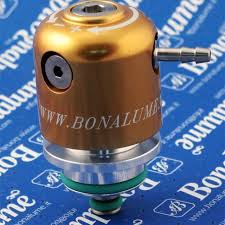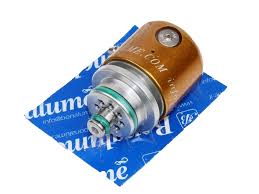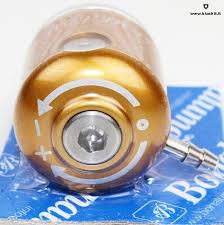Bonalume
FUEL PRESSURE REGULATOR BONALUME ASYMMETRIC 500 595 ABARTH 1.4 TURBO
FUEL PRESSURE REGULATOR BONALUME ASYMMETRIC 500 595 ABARTH 1.4 TURBO
Couldn't load pickup availability
ASYMMETRIC FUEL PRESSURE REGULATOR
Fuel pressure regulator to be installed on the engine flute of the 500 or 595 Abarth T-Jet and other similar engines.
Unlike the adjustable regulator this model also offers the advantage of having a 1/1.4 ratio.
To understand better: CLASSIC SYMMETRIC FUEL PRESSURE REGULATOR = INITIAL CALIBRATION FUEL PRESSURE – 3 BAR + TURBINE BOOST PRESSURE - 1 BAR = FINAL FUEL PRESSURE RESULT 4 BAR Now in this condition, if we needed to give more fuel to our engine because it runs lean, we should act on the pressure register and increase it by enough to bring us to carburetion at medium and high revs. But if the carburetion was very lean, we should also increase the pressure regulation by a lot, thus DIRTYING the carburetion at low revs (with the obvious consequences of loss of torque, pollution, consumption and immediate deterioration of the catalyst.) Therefore we should find a compromise by making do with what we can do. Conclusion: dirty delivery in the low range, almost good in the mid range, and bordering on lean in the high range.
ASYMMETRIC FUEL PRESSURE REGULATOR 1/1.4 this problem disappears, as the percentage of increase is asymmetrical to the turbine pressure, example: INITIAL CALIBRATION FUEL PRESSURE – 3 BAR + TURBINE BOOST PRESSURE 1 BAR = (1.4 bar contribution of petrol pressure) FINAL RESULT OF PETROL PRESSURE 4.4 BAR In addition to being asymmetrical it is also progressive, so the increase in pressure is proportional even to the low turbine pressures, every tenth of a bar turbine will cause an increase of 1.4 tenths of petrol pressure. It is also adjustable, and is also interchangeable with the original regulator, so no modifications need to be made for assembly. No inappropriate and dangerous pipes loaded with petrol pressure to carry around the engine compartment.
MAX FLOW RATES: 3 bar = 270 lh – 4 bar = 220 lh – 5 bar = 190 lh
Share






